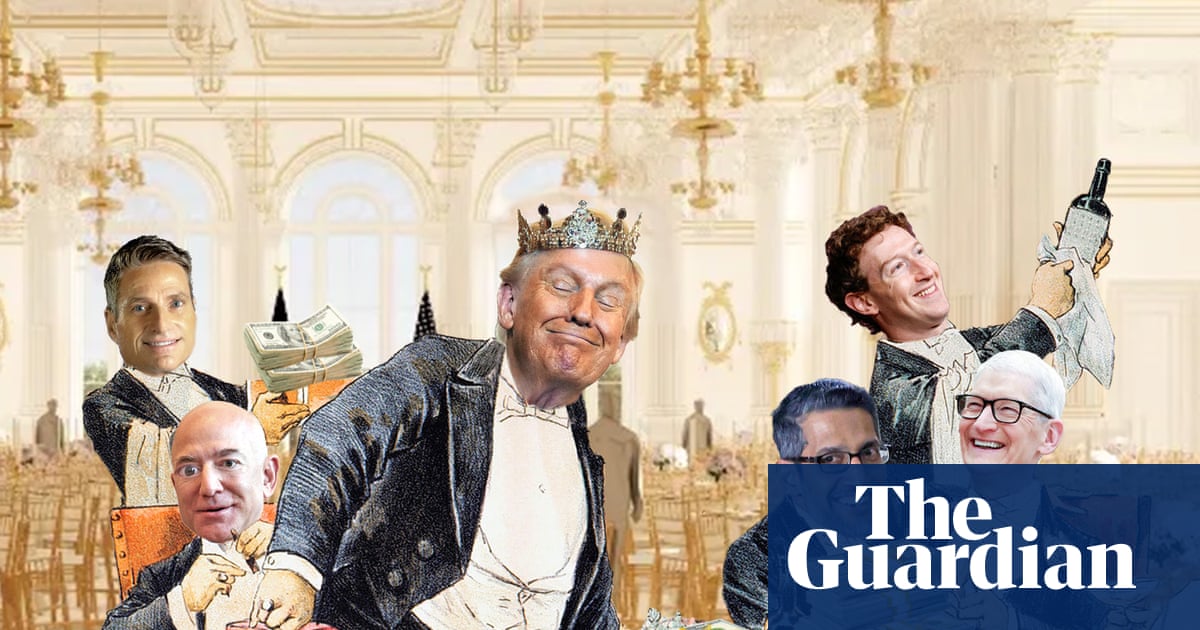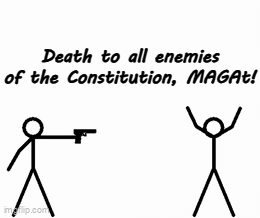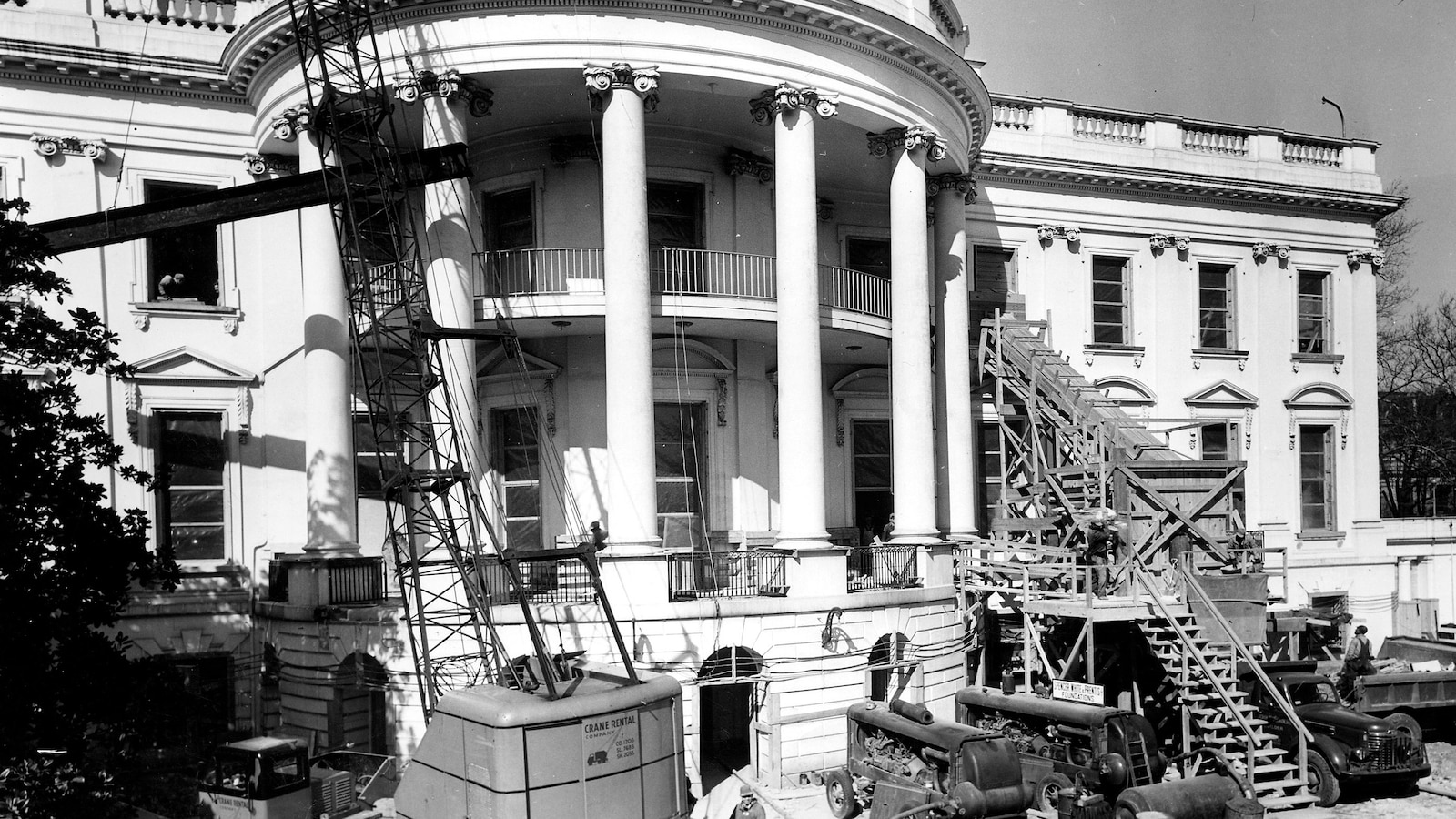You still didn't answer the question asked of you.
Telling, isn't it?
You still didn't answer the question asked of you.
You didn't answer my question. I wonder why?You still didn't answer the question asked of you.
why open the government when you can hold the nation hostage?The luxury gap: Trump builds his palace as Americans face going hungry
Schmoozing the super-rich to fund a $300m ballroom while cutting food aid for those on low incomes threw the president’s architectural folly into sharp relief.


The luxury gap: Trump builds his palace as Americans face going hungry
Schmoozing the super-rich to fund a $300m ballroom while cutting food aid for those on low incomes threw the president’s architectural folly into sharp reliefwww.theguardian.com
Truman did it the correct way, he did not act like he owned it.
In which way does he "act" like a king? Is it the not spending money that hasn't been allocated by congress that makes him a king? The asking congress to do their job and pass bill thing that makes him "act" like a king? Is it the taking things to the courts part?
The person acting most like a king in this country right now is the Judge demanding that the President ignore the constitution and spend unallocated funds on what he wants them spent on. He is trying to be the Congress, the Executive, and doesn't have the authority to do what he's demanding.
I know you are but what am I infinity FrancesThat's YOUR battle, evince.
why open the government when you can hold the nation hostage?
I just hope there's enough Americans willing to stand up and fight for it. Taking out the pumpkin-headed trash would help. LOLHe wants to be a king and acts like one.
Thank goodness we have the Constitution.

You Russians are like thatI'll be gladder when you aren't around to witness anything, Guano.
the civil war is cancelled, deep state.I just hope there's enough Americans willing to stand up and fight for it. Taking out the pumpkin-headed trash would help. LOL

The coming civil war will allow patriotic Americans to neutralize the Russophiles and the enemy within.You Russians are like that


people point to a lot of dumb things, especially lies and mischaracterization in this case.AI Overview
+12
Critics and legal experts who accuse Donald Trump of acting like a king point to his efforts to expand unilateral presidential power, his challenges to constitutional checks and balances, and his demands for personal loyalty over institutional processes.
Key ways he is described as acting like a king include:
Governance by Decree: Critics argue that Trump has relied heavily on executive actions and orders to implement sweeping policy changes, such as in immigration (e.g., essentially shutting down the asylum process at U.S. ports of entry), in a manner that bypasses Congress's legislative authority.
Challenging Separation of Powers: Accusations center on his administration's perceived attacks on the independence of other government branches and institutions, including the judiciary, the Department of Justice, and the intelligence community.
Demanding Personal Loyalty: Concerns have been raised about his attempts to replace non-partisan, expert civil servants with political loyalists and to use federal agencies for political purposes, which critics compare to a monarch's control over their court and bureaucracy.
Claims of Absolute Immunity: Legal arguments made by his defense team and a subsequent Supreme Court ruling granting "presumptive" immunity for official acts have led critics to argue the president "now gets to behave like a king, or a dictator," by placing himself above the law and beyond criminal prosecution for actions taken in office.
Disregard for Norms and the Rule of Law: He has been accused of ignoring the rules, customs, and decorum that govern the presidency, stretching the guardrails of presidential power to their limits for personal or political gain rather than the public interest.
Use of Rhetoric: Trump has sometimes used or shared "kingly" rhetoric, such as a social media post that read "long live the king," which critics point to as evidence of his monarch-like aspirations.
Attacks on the Media and Dissent: Critics highlight actions aimed at weakening the independent media and stifling dissent, which they view as tactics used by authoritarian rulers to control the public narrative.
It's good to be the King, no?Well, if a federal district court judge can order POTUS to give Section 32 funds to an organization his wife runs, why can’t said judge just order the Democrats to vote to open the government?
Good to be the King, but as our Founders realized, not so good to be the King's subjects.It's good to be the King, no?

Should be a picture of the Judge, you know the one pretending he has more power to appropriate and allocate funding than congress does.Good to be the King, but as our Founders realized, not so good to be the King's subjects.

Truman did it the correct way, he did not act like he owned it.





It's good to be the King, no?
the civil war is cancelled, deep state.The coming civil war will allow patriotic Americans to neutralize the Russophiles and the enemy within.

Wow. You don't realize our government has three branches? Fascinating!Should be a picture of the Judge, you know the one pretending he has more power to appropriate and allocate funding than congress does.

